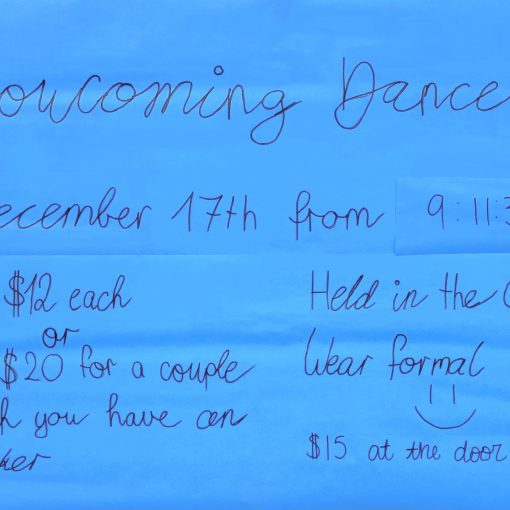Trigger warning: Talk of suicide and depression.
Suicide often is something that’s swept under the rug and not talked about until it’s too late. September is National Suicide Prevention Month, a time to bring awareness to people struggling with suicidal thoughts, remind people they’re not alone, and teach others how they can be there for the people closest to them. Often, people dealing with suicidal ideation or any mental health issues think they have to be quiet about it and deal with it themselves. It can be hard just to acknowledge that you need help, much less ask for it.
Depression is a disorder common among people who deal with suicidal thoughts or tendencies. To know how to recognize signs of depression, you first have to know what depression is. Depression is a disorder, which means it’s not something you can control alone. People often describe depression as a chemical imbalance, which is for the most part true, but it is not as simple as that. It can be caused by inadequate mood regulation by the brain, stressful life events, genetic vulnerabilities, medications, or medical problems. You might feel like everything is going great in your life, but still you can’t help but feel sad. Other symptoms of depression include loss of interest in activities you may have enjoyed in the past; irregular changes in appetite as well as weight gain or loss that is unrelated to diet; trouble sleeping or sleeping too much; loss of energy and increased fatigue; an increase in fidget activity such as pacing, hand-wringing, or the inability to sit still; very slow movements and speech that are severe enough to be noticed by others; feelings of guilt or worthlessness; difficulty concentrating, thinking, or making decisions; and thoughts of death or suicide.

Depression is estimated to occur in 1 in 15 adults (6.7%) in any given year. Statistics show that 1 in 6 people (16.6%) will experience depression at some point in their life. The percentage 6.7 might sound small, but 6.7% of the American population equals 21,989,400 people. Depression can be experienced at any time, but it is most common during the late teens to mid-20s. Studies show that 1 in 3 women will experience a majorly depressive episode in their lifetime. In addition, 30% to 60% of LGBTQ+ people deal with depression and anxiety in their lifetime, which is a 1.5 to 2.5 times higher rate than those who are cisgender heterosexual. There is about a 40% chance of inheriting depression when first-degree family members (parents or siblings) have depression. Those statistics can sound really overwhelming, but there are ways to treat depression, such as medication and psychotherapy.
Ways that you can support a friend who is dealing with mental health issues are simple. Remind all of your friends you’re here for them and that you care about them. Even if they don’t have or show signs of having depression, it’s important to let people know you care and that they’re not alone. Dealing with mental health in any facet can feel overwhelming and is worse if you’re doing it in silence. Listen to your friends if they talk to you about what’s wrong; sometimes you just need someone to vent to. Remember that even if they tell you what’s wrong, they may not want advice or input; they could simply want an ear to listen. When supporting anyone with a mental health issue, disorder, etc., it’s important to do your own research as well. Having to educate everyone over and over again about your experiences can be exhausting for a person, so doing your own research shows that person that you care enough to learn more about what they’re dealing with and how you can better support them. Try not to minimize or compare their experiences. Saying things like, “Things could always be worse” or “Think about the good things in your life,” are phrases that you’d generally want to avoid as they could make them feel like they need to be fixed or like the things they’re feeling are something they can control, which they’re not.
There are many signs that your friend might be considering suicide. You should intervene if you notice your friend talking about death or dying often, having frequent mood swings or personality changes, purchasing a weapon or coming into possession of a weapon, increased substance use, risky/dangerous behavior, getting rid of belongings/treasured possessions, talking about feeling trapped or wanting a way out, pushing people away or looking for an out to friendships and other relationships, and saying goodbye with more meaning than usual.
Lastly, for anyone dealing with depression, suicidal thoughts or any other mental health issues, remember that you are not alone. Reach out for help. You don’t have to suffer in silence. Thinking about all the things you have to do or haven’t done can be overwhelming, but remember the things you did do today. You got out of bed today, you came to school, you are here, and that’s an accomplishment. We are proud of you. You are loved, you deserve to be loved, you deserve to be here, you are real, this is real, you are valid, you matter, and we want you to be here.
Down below you can find information and resources if you or anyone you know needs help.
EHS Counselors
Brittany McMillan: bmcmillan@fernridge.k12.or.us
Courtland Wirth: cwirth@fernridge.k12.or.us
National Crisis Hotlines
National Suicide Prevention Lifeline: 1-800-273-TALK (8255)
National Suicide Prevention Textline: 1-800-799-4889
LGBTQ+ Youth Suicide Hotline/Trevor Project: 1-866-488-7386 or text “Trevor” to 1-
202-304-1200; https://www.thetrevorproject.org/
Trans Lifeline: 877-565-8860
Depression Hotline: 1-630-482-9696
Grief Support: 1-650-321-5272
Sexuality Support: 1-800-246-7743
National Child Abuse Hotline: 1-800-422-4453
National Youth Crisis Hotline: 1-800-448-4663
National Child Abuse Hotline for hearing impaired: 1-800-222-4523
Crisis Text Line: Text “CONNECT” to 741741
National Domestic Violence Hotline: 1-800-799-SAFE (7233)
National Association of Anorexia Nervosa & Associated Disorders: 1-847-831-3438
National Human Trafficking Hotline: 1-888-373-7888 or text 233733
National Sexual Assault Hotline: 1-800-656-HOPE (4673) or rainn.org
National Center for Missing & Exploited Children: 1-800-843-5678
Exhale: 1-866-439-4253 (talkline) or 617-749-2948




